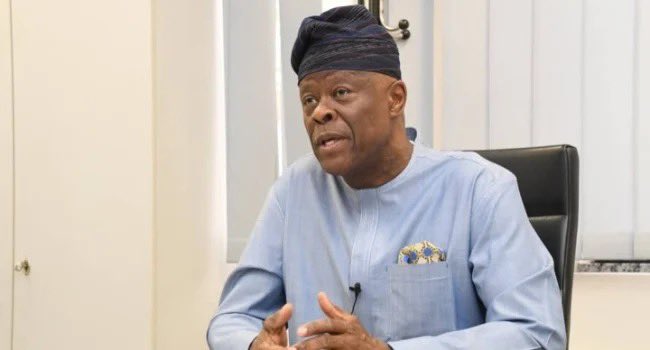The Minister of Finance and Coordinating Minister of the Economy, Wale Edun on Thursday described the Nigeria Sovereign Investment Authority (NSIA) as “an essential institution for our nation’s economic stability and growth,” as he officially inaugurated the newly constituted Board chaired by Segun Ogunsanya.
The Inauguration held at the Ministry of Finance, Abuja following the final approval by President Bola Tinubu and endorsement by the Vice President, Kashim Shettima, GCON, who chairs the National Economic Council (NEC).
“This newly appointed Board comprises distinguished professionals from various sectors, carefully selected through deliberations and recommendations made by the Executive Nominations Committee,” Edun stated while inaugurating them.
Reflecting on the NSIA’s 11-year journey since its inception, the Minister praised the institution’s outstanding progress in achieving its mandate.
The Board members include: Segun Ogunsanya, Chairman; and Aminu Umar-Sadiq, who is the MD/CEO.
Other members are Fabian Ajogwu, Abdullahi Mahmud Gaya, Ahmed Goniri, Ada Osakwe, Suleyman Ndanusa, Ijeoma Taylaur, and Kola Owodunni.
In his inaugural remarks, Ogunsanya, the new Board chair, affirmed his commitment to fostering a prosperous future for the next generation.
“Our mandate is clear—we are here to enhance the wealth of our nation and ensure that future generations do not face the spectre of poverty,” he stated.
Ogunsanya also highlighted the Board’s ambition to significantly grow the fund under its management.
The NSIA is Nigeria’s investment institution established by the Nigeria Sovereign Wealth Act (2011), to manage and invest in a diversified portfolio of medium and long-term funds.
Its mission is to play a leading role in driving sustained economic development for the benefit of all Nigerians through building a savings base for the Nigerian people, enhancing the development of Nigeria’s infrastructure, and providing stabilization support in times of economic stress.
The Authority has been able to grow the Fund to $2.5 billion from the $1 billion at inception.

